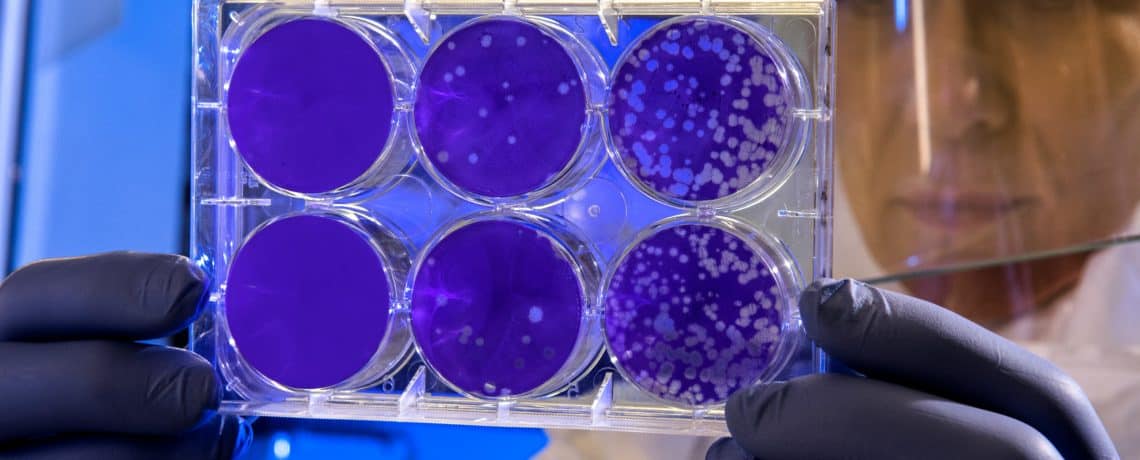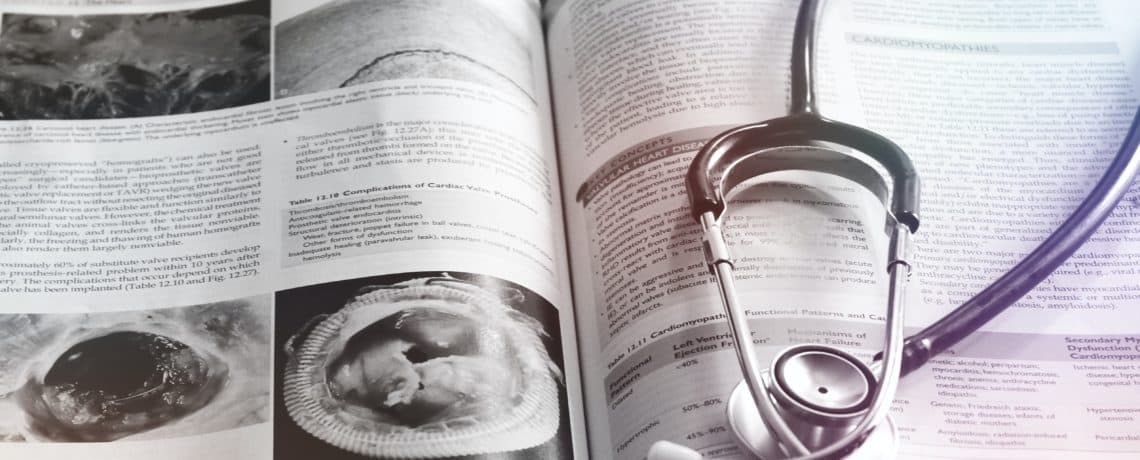Toward a human-focus paradigm in health research
Our library consists of peer-reviewed publications co-authored or funded by members of the BioMed21 Collaboration. The publications offer recommendations for future research into human health and disease and demonstrate how advances in new non-animal technologies can be applied to better understand human physiology and human disease pathways.
Human-based complex in vitro models: their promise and potential for rare disease therapeutics
Parvatam et al., 2025
Humane Society International Hyderabad, India
Frontiers, https://doi.org/10.3389/fcell.2025.1526306
This article argues that human cell-based Complex In Vitro Models (CIVMs) offer a more efficient and effective approach to rare disease drug development compared to traditional animal-based research methods, potentially accelerating the creation of human-relevant therapeutics for the rare disease community.
A survey to assess animal methods bias in scientific publishing
Krebs et al., 2023
Humane Society International Europe, Bruxelles, Belgium
ALTEX, doi: 10.14573/altex.2210212
This paper describes findings from a study on “animal methods bias” in publishing: a preference for animal-based methods where they may not be necessary or where non-animal-based methods may be suitable, which affects the likelihood of a manuscript being accepted for publication.
Systematic Organization of COVID-19 Data Supported by the Adverse Outcome Pathway Framework
Nyemark et al., 2021
Humane Society International, Washington DC, United States.
Frontiers in Public Health, doi: 10.3389/fpubh.2021.638605
This paper outlines the CIAO project, a project that aims to streamline collaboration between scientists across the world toward development of AOPs for COVID-19.
Endometriosis: current challenges in modeling a multifactorial disease of unknown etiology
Malvezzi et al. 2020
Humane Society International, Washington, DC, United States
Journal of Translational Medicine, https://doi.org/10.1186/s12967-020-02471-0
The study examines available preclinical models for endometriosis, including their translational efficacy and limitations and exposes disconnect between animal research and clinical investigation.
The Overt and Hidden Use of Animal-Derived Products in Alternative Methods for Skin Sensitisation: A Systematic Review (requires subscription)
Marigliani et al. 2019
Humane Society International, Washington, DC, United States
ATLA, https://doi.org/10.1177/0261192919896361
Reviews the extent to which animal-derived products are currently in use in biomedical research, revealing a conundrum in which the methods being developed to replace the use of animals rely heavily on animal-derived by-products.
In vitro and in silico Models to Study Mosquito-Borne Flavivirus Neuropathogenesis, Prevention, and Treatment
Chesnut et al. 2019
Center for Alternatives to Animal Testing, Johns Hopkins Bloomberg School of Public Health, Baltimore, Maryland, United States
Frontiers in Cellular and Infection Microbiology, https://doi: 10.3389/fcimb.2019.00223
Summarizes recent research on in vitro and in silico models used to study three mosquito-borne flaviviruses that cause neurological disease in humans & proposes a roadmap to apply human-relevant research to neuropathogenesis, prevention, & treatment.
Supported by funding from The Humane Society of the United States/ Humane Society International
Future Roadmaps for Precision Medicine Applied to Diabetes: Rising to the Challenge of Heterogeneity
Bowman P et al. 2018
University of Exeter Medical School, Exeter, United Kingdom
Journal of Diabetes Research, https://doi.org/10.1155/2018/3061620
Reviews how human-relevant research is needed to develop a better understanding of diabetes heterogeneity and its impact on potential treatments for specific subtypes.
Supported by funding from The Humane Society of the United States/ Humane Society International
Cardiovascular disease models: A game-changing paradigm in drug discovery and screening
Savoji H et al. 2018
Institute of Biomaterials and Biomedical Engineering, University of Toronto, Ontario, Canada
Biomaterials,https://doi.org/10.1016/j.biomaterials.2018.09.036
Reviews the pathophysiology and underlying pathways of several cardiac diseases and proposes a roadmap for employing non-animal platforms in assessing cardiotoxicity.
Supported by funding from The Humane Society of the United States/ Humane Society International.
Parkinson’s disease research: adopting a more human perspective to accelerate advances
Marshal LJ, Willett C 2018
The Humane Society of the United States, Washington, DC, United States
Drug Discovery Today, https://doi.org/10.1016/j.drudis.2018.09.010
Reviews progress and limitations of the multiple Parkinson’s Disease animal models available and identifies advances to be implemented to better understand pathological processes, improve disease outcome, and reduce dependence on animal models.
Human-based systems: Mechanistic NASH modelling just around the corner?
Boeckmans J et al. 2018
Vrije Universiteit Brussels, Belgium
Pharmacological Research, https://doi: 10.1016/j.phrs.2018.06.029
Describes how human-based tools can aid understanding of non-alcoholic steatohepatitis (NASH) and contribute to effective drug development for this chronic liver condition.
Supported by funding from The Humane Society of the United States/ Humane Society International.
Use of Adverse Outcome Pathways (AOPs) in human risk assessment and toxicology. In: A Systems Biology Approach for Advancing Adverse Outcome Pathways for Risk Assessment
Willett C et al. 2018
The Humane Society of the United States, Washington, DC, United States
Springer International Publishing. 2018 pp 349-378
Describes the evolution of the AOP approach, including the development of tools from international collaborations, and describes examples for the use of AOP in human health assessment.
Experimental study of tuberculosis: From animal models to complex cell systems and organoids
Fonseca KL et al. 2017
i3S – Instituto de Investigação e Inovação em Saúde, Universidade do Porto, Porto, Portugal
PLoS Pathog. https://10.1371/journal.ppat.1006421
Details how improved experimental models could contribute to the elimination of tuberculosis, with a particular focus on the development of human lung organoid models.
Supported by funding from The Humane Society of the United States/ Humane Society International.
A look into the future of ALS research
Clerc P et al. 2016
The Humane Society of the United States, Washington, DC, United States
Drug Discov Today. https://10.1016/j.drudis.2016.02.002
Discusses how better understanding of human biology, including genetics and disease phenotypes, can provide more insight into susceptibility to, and pathogenesis of, amyotrophic lateral sclerosis.
The Human Model: Changing Focus on Autism Research
Muotri AR 2016
University of California San Diego, Department of Pediatrics/Rady Children’s Hospital, San Diego, California, United States
Biol Psychiatry. https://10.1016/j.biopsych.2015.03.012
Reviews how a “disease-in-a-dish” approach using induced pluripotent stem cells (iPSC) could provide insights into disease pathways and reveal effective, personalized drug therapies for autism spectrum disorder.
Supported by funding from Humane Society International/ World Animal Protection.
A shift in paradigm towards human biology-based systems for cholestatic-liver diseases
Noor F et al. 2015
Biochemical Engineering Institute, Saarland University, Saarbrücken, Germany
J. Physiol. https://10.1113/JP271124
Looks at how advances in technology, including tissue culture and analytical methods, are enabling deeper mechanistic understanding of cholestatic liver diseases.
Supported by funding from Humane Society International/ World Animal Protection.
Innovative human-specific investigational approaches to autoimmune disease
van de Stolpe A, Kauffmann RH 2015
Philips Research, Eindhoven, The Netherlands
RSC Adv. https://doi: 10.1039/c4ra15794j.
Describes the need for human investigational disease models in order to understand the biology of autoimmune conditions and to develop targeted, personalized therapies.
Supported by funding from Humane Society International/ World Animal
Considering a new paradigm for Alzheimer’s disease research
Langley GR 2014
Humane Society International, Washington, DC, United States
Drug Discov Today. https://10.1016/j.drudis.2014.03.013
Using Alzheimer’s disease as a case study, this review argues that it might be time to consider a new paradigm in medical research and drug discovery.
Harnessing opportunities in non-animal asthma research for a 21st-century science
Buckland GL 2011
Humane Society International, Washington, DC, United States
Drug Discov Today. https://10.1016/j.drudis.2011.08.005
Considers how progress in translatable research may originate from reassessment of the asthma research paradigm rather than through animal models of disease.
Taking the leap toward human-specific nonanimal methodologies: The need for harmonizing global policies for microphysiological systems
Parvatam et al., 2024
Humane Society International, Hyderabad, India.
Cell Press, doi.org/10.3390/ani12070863
This article discusses the factors influencing the success and adoption of Microphysiological Systems (MPS) in drug development, emphasizing the need for standardization, validation, and global harmonization of these technologies to enhance their regulatory acceptance and implementation across various industries.
Role of Standards and Funding in Accelerating the Development and Use of Microphysiological Systems
Parvatam et al., 2024
Humane Society International, Hyderabad, India.
ALTEX, doi.org/10.3390/ani12070863
The paper focuses on the slow uptake of non-animal new approach methods (NAMs), including microphysiological systems (MPS), in academia and industry, discussing barriers such as lack of globally harmonized standards and performance-related issues, while emphasizing the need for prioritized funding and standardization to accelerate their development and adoption.
What public health challenges and unmet medical needs would benefit from interdisciplinary collaboration in the EU? A survey and multi-stakeholder debate
Pistollatto et al., 2024
Humane Society International, Brussels, Belgium.
Frontiers in Public Health, https://doi.org/10.3389/fpubh.2024.1417684
The paper focuses on presenting survey results and roundtable discussions that brought together various stakeholders to identify needs for the EU research and policy agenda, explore strategies to enhance the translational impact of EU-funded research, and define factors contributing to persistent disease prevalence, ultimately providing actionable recommendations to support scientific progress through interdisciplinary collaboration in the EU.
Transitioning biomedical research towards human-centric methodologies: systems-based strategies
Constantino et al., 2024
Humane Society International, Brussels, Belgium.
Drug Discovery Today, https://doi.org/10.1016/j.drudis.2024.103947
The paper focuses on proposing a systemic thinking approach, endorsed by the OECD and the EU, to address the limitations of animal models in biomedical research by identifying complex factors influencing method selection and offering policymakers a new framework for more effective strategies through collaboration and robust data.
Phase-In to Phase-Out—Targeted, Inclusive Strategies Are Needed to Enable Full Replacement of Animal Use in the European Union
Marshall et al., 2022
Humane Society International, Bruxelles, Belgium.
Animals, doi.org/10.3390/ani12070863
Focusing on the European Union, this paper explores what is required, beyond the Directive 2010/63/EU, to enable full replacement of animals in research and testing.
What’s not in the news headlines or titles of Alzheimer disease articles? #InMice
Triunfol and Gouveia. 2021
Humane Society International, Washington DC, United States.
PLoS Biol, https://doi.org/10.1371/journal.pbio.3001260
This paper analysed newspaper headlines and the associated scientific articles to find that papers that fail to mention ‘mice’ in the title lead to misleading headlines.
The potential of mechanistic information organised within the AOP framework to increase regulatory uptake of the developmental neurotoxicity (DNT) in vitro battery of assays
Sachana et al., 2021
Humane Society International, Washington DC, United States.
Reprod Toxicology, doi: 10.1016/j.reprotox.2021.06.006
This manuscript summarises international efforts to enhance DNT testing with an in vitro battery of assays, focusing on the role of AOPs in informing the development of IATA for different regulatory purposes.
The need to develop a framework for human-relevant research in India: Towards better disease models and drug discovery
Parvatam et al. 2020
Centre for Predictive Human Model Systems, Hyderabad, India
J Biosci, https://doi.org/10.1007/s12038-020-00112-8
This paper describes the state of research, funding, and regulation of non-animal technologies, including organoids and organ-on-chip in India.
Patient-Derived Xenograft vs Organoids: A Preliminary Analysis of Cancer Research Output, Funding and Human Health Impact in 2014-2019
Marshall et al. 2020
Humane Society International, Washington DC, United States
Animals, https://doi.org/10.3390/ani10101923
Researchers at Humane Society International analyzed research funding, numbers of papers published and clinical trials for breast, lung and colorectal cancers across the European Union and in the US between 2014 and 2019.
Animal testing for vaccines. Implementing replacement, reduction and refinement: challenges and priorities
Akkermans et al. 2020
Humane Society International, Washington DC, United States
Biologicals, https://doi.org/10.1016/j.biologicals.2020.07.010
Workshop report that provides an update on the current status of reduction, replacement and refinement opportunities in vaccine production, and proposes a way forward for the global implementation of 3Rs in the vaccines’ area.
Need for Alternatives to Animals in Experimentation: An Indian Perspective
Swaminathan et al. 2019
Former Director-General, Indian Council of Medical Research, Ansari Nagar, New Delhi, India
Indian Journal of Medical Research, doi: 10.4103/ijmr.IJMR_2047_17
Perspective paper from an Expert Committee including HSI/India and ICMR, one of the major funding bodies in India, describing the need to develop non-animal methods in India and calling for dedicated funding for non-animal methods to enable Indian independence with these emerging technologies.
Lessons from Toxicology: Developing a 21st-Century Paradigm for Medical Research
Langley GR et al. 2015
Humane Society International, Washington, DC, United States
Environ Health Perspect. https://10.1289/ehp.1510345
Considers how to re-purpose recent advances in environmental health research and toxicity testing to create a new conceptual framework for human specific disease research.
Leveraging innovative research tools to meet public health challenges: a BioMed21 workshop report
Pistollato, 2025
Humane World for Animals, Brussels, Belgium
https://doi.org/10.1016/j.namjnl.2025.100023
This report summarises insights and outputs from a BioMed21 science policy workshop, offering a roadmap to foster impactful, science-driven, and health-focused biomedical research paradigms that meet evolving societal and public health needs.
Towards human-centric biomedical research: impacts and perspectives for public health
Pistollato, 2025
Humane Society International
This editorial, published in Italian in LifeGate, explores the need for a cultural shift to accelerate the integration of innovative non-animal methods in biomedical and preclinical research.
Proceedings of a Workshop to Address Animal Methods Bias in Scientific Publishing
Krebs et al.,2022
Humane Society International, Bruxelles, Belgium.
ALTEX, doi.org/10.3390/ani12070863
This article covers the output from an animal-methods bias workshop between stakeholders in publishing, academia, industry, government, and non-governmental organizations.
Designing a National Strategy to Enable Human-Relevant Research in India: A Multistakeholder Roundtable Meeting Report
Parvatam, 2022.
Humane Society International, Washington DC, United States.
ALTEX, doi:10.14573/altex.2111151
This meeting report describes the discussions and outcomes of the second roundtable in a series of events organised by the Centre for Predictive Human Model Systems (CPHMS), an initiative of Humane Society International India and the Atal Incubation Centre – Centre for Cellular and Molecular Biology.
Enabling a Shift Towards a Human-Relevant and Predictive Paradigm for Biomedical Research and Drug Discovery in India
Parvatam et al., 2021
Humane Society International, Washington DC, United States.
ALTEX, doi:10.14573/altex.2103221
This meeting report describes the discussions and recommendations from a virtual roundtable organised by the Centre for Predictive Human Model Systems (CPHMS), an initiative of Humane Society International India and the Atal Incubation Centre- Centre for Cellular and Molecular Biology.
Understanding COVID-19 through adverse outcome pathways – 2nd CIAO AOP Design Workshop
Wittwehr et al., 2021
Humane Society International, Washington DC, United States.
ALTEX https://doi.org/10.14573/altex.2102221
This is a meeting report of the 2nd CIAO AOP Design Workshop where COVID-19 disease process as a series of key events (KEs) in a network of AOPs was discussed.
Applying evidence-based methods to the development and use of adverse outcome pathways
de Vries et al. 2021
Humane Society International, Washington DC, United States.
ALTEX https://doi.org/10.14573/altex.2101211
This paper reports on the initial CIAO workshop which was designed to bring together international regulatory bodies, risk assessors, academic scientists, and industry to explore how systematic review methods and the adverse outcome pathway framework could be combined to develop and use mechanistic test methods for predicting the toxicity of chemical substances in an evidence-based manner.
Global harmonization of vaccine testing requirements: Making elimination of the ATT and TABST a concrete global achievement
Viviani et al., 2019
Humane Society International, Washington, DC, United States
Biologicals, https://doi.org/10.1016/j.biologicals.2019.10.007
Reports on the outcomes of a one-day symposium organized by Humane Society International where international experts considered country-specific perspectives for the waiver and elimination of the toxicity (ATT) and safety (TABST, LABST) tests currently required for human and veterinary vaccine production.
Benam et al. 2019The Humane Society of the United States, Washington, DC, United States Drug Discovery Today, https://doi.org/10.1016/j.drudis.2019.04.001 Reports on a workshop held at Emory University School of Law to introduce students and researchers to the innovative new technologies transforming biomedical research. Event co-sponsored by the Human Toxicology Project Consortium and the Humane Society of the United States
Recommendations toward a human pathway-based approach to disease research
Marshall LJ et al. 2018
The Humane Society International, Washington, DC, United States
Drug Discovery Today, https://doi.org/10.1016/j.drudis.2018.05.038
Describes the Biomed21 Collaboration meeting that took place in United States in 2017 and which gathered a group of scientists and other stake holders.
Human-specific approaches to brain research for the 21 st century: a South American perspective
Triunfol M et al. 2018
The Humane Society International, Washington, DC, United States
Drug Discovery Today, https://doi.org/10.1016/j.drudis.2018.06.001
Describes the Biomed21 Collaboration meeting that took place in Brazil in 2017 and which gathered a group of scientists in Latin America and other stake holders.
Towards a 21st-century roadmap for biomedical research and drug discovery: consensus report and recommendations
Langley GR et al. 2017
Humane Society International, Washington, DC, United States
Drug Discov Today. https://10.1016/j.drudis.2016.10.011
Consensus report from an international workshop and presents recommendations for applying human biology-based models and tools to the understanding of human disease pathways.
Share this:
- Click to share on X (Opens in new window) X
- Click to share on Facebook (Opens in new window) Facebook
- Click to share on LinkedIn (Opens in new window) LinkedIn
- Click to email a link to a friend (Opens in new window) Email
- Click to print (Opens in new window) Print
- More
- Click to share on Reddit (Opens in new window) Reddit
- Click to share on Tumblr (Opens in new window) Tumblr
- Click to share on Pinterest (Opens in new window) Pinterest
- Click to share on Pocket (Opens in new window) Pocket
- Click to share on Telegram (Opens in new window) Telegram
- Click to share on WhatsApp (Opens in new window) WhatsApp



